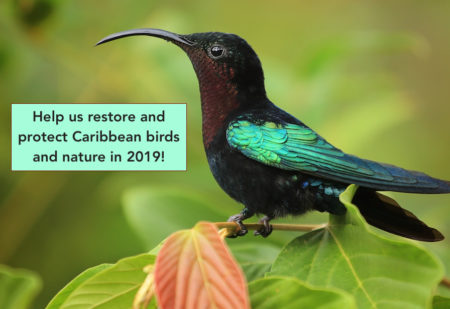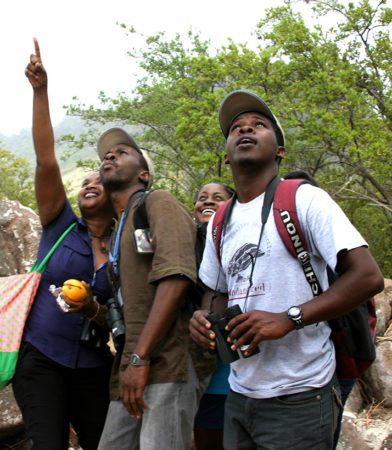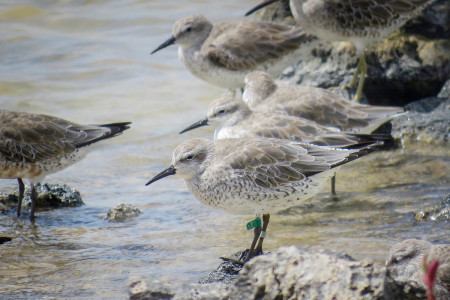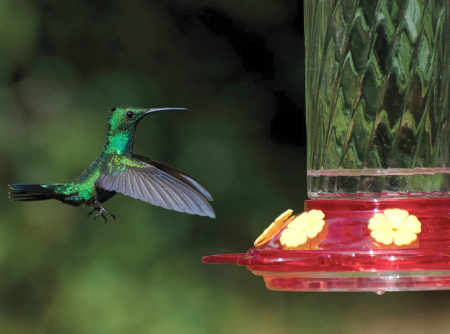
We are 30 years old, and what a year 2018 – the Year of the Bird – has been!
The Caribbean has had another extraordinary year. It has been a “Tale of Two Cities” – or rather, two different groups of islands. On the one hand, it has been a story of restoration and a major push for recovery for islands devastated by the 2017 hurricanes. On the other hand, there were many encouraging developments on other islands; a number of conservation programs are under way that offer hope for our bird populations. Hispaniola researchers discovered new nesting sites of the critically endangered Black-capped Petrel. On St. Vincent and the Grenadines, BirdsCaribbean provided 24 people with sustainable economic livelihoods through our Interpretive Bird Guide Training Program.
BirdsCaribbean is deeply grateful for the generosity of donors and supporters throughout the year. This outpouring of support has helped us tackle the very tough work of identifying the post-hurricane needs of bird populations. This vital funding helped us provide our partners with the support they needed to get themselves, and the birds, back on their feet. Literally, at times – as many birds were shell-shocked!
There was much work to be done this year, but the Caribbean is well known for the resilience of its people. Our island-based partners rolled up their sleeves and got started. BirdsCaribbean helped communities rebuild and expand their conservation and education work, and launched new programs that focused on precious bird habitats – forests and coastal natural resources among them. It is always important to keep moving forward.
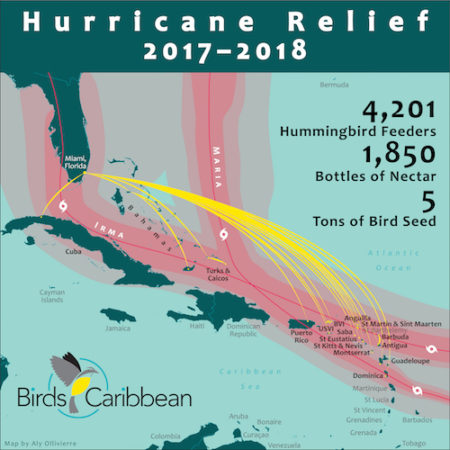
Thanks to your support, we completed some major work this year. We funded bird surveys for threatened species like the Piping Plover and hurricane recovery work across 18 islands, including shipment of bird feeders, nectar and seed to 18 islands. We supported more than 80 Caribbean Endemic Bird Festival and World Migratory Bird Day events on 22 islands, reaching over 100,000 residents. Another milestone was the establishment of the Caribbean’s second Western Hemisphere Shorebird Reserve Network site on the Cargill Salt Ponds of Bonaire.
However, some major challenges face us, and they are formidable. Some bird species – such as the Imperial Parrot in Dominica and the Bahama Nuthatch – now face extinction from the impacts of climate change, including storms. Island endemics are also threatened by a range of invasive species, and by poorly-planned human development projects. The situation is more critical and urgent than ever.
We do not want to lose these precious species – or the habitats they depend on.
While we remain undaunted, we know that ongoing support is required to continue to build on the gains we have made in 2018. We are hoping that our supporters can make a special year-end gift, to help continue the momentum that is building. Our work for the conservation of Caribbean birds and their habitats is not done from behind a desk. It is on the ground, working with our partner organizations. We seek solutions, and we get results.
Meanwhile, our vital education, science, and capacity-building programs across the Caribbean continue, in countries that did not make dramatic headlines. We launched the Betty Petersen Conservation Fund, raising more than $135,000 for groups that will engage and empower their communities to protect and sustainably benefit from their birds. We now have 15 years of archives from our Journal of Caribbean Ornithology, available for free download and we are working on getting the remaining 15 of our 30 years online. Our Seabird Monitoring Manual is now available in three languages. We supported many studies of species of concern, such as the Bridled Quail-Dove on St. Eustatius – a bird whose population has declined by 76% since Hurricanes Irma and Maria.
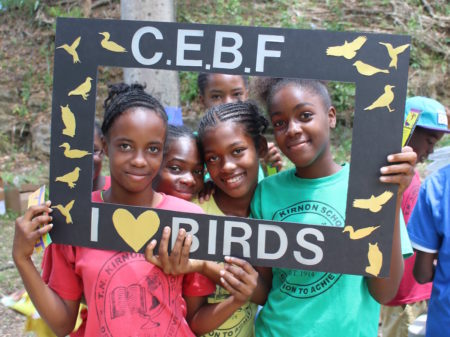
BirdsCaribbean also continues to make connections. We bring Caribbean people together through birds in several ways. We provide materials and small grants for creative annual programs, such as our Caribbean Endemic Bird Festival (this year including Haiti for the first time) and World Migratory Bird Day activities. This year these community-based events reached over 100,000 people in 20 countries. Our specially designed BirdSleuth Caribbean educational program is in use in 22 countries through 40 teacher training workshops this year. Over 37,775 Caribbean children and 9,329 community members participated in the workshops – yes, we did the math! We continue to work with eco-tourism tour groups, expanding bird watching tours across the Caribbean. In 2018, we promoted trips to Cuba, Barbados, Dominican Republic, Jamaica and Puerto Rico.
Lastly, but importantly, we have continued our work to help restore critical bird habitats. In hurricane-hit St. Maarten, we helped purchase 300 mangrove seedlings as well as 500 other plants, beginning a long-term restoration project in Cay Bay and Sentry Hill. This was just one of ten restoration projects we undertook on four islands, all impacted by the 2017 storms: the restoration and replanting of Red Mangrove at Anguilla’s West End Pond, restoration and enhancement of nesting habitat for Red-Billed Tropicbirds at the IBAs of Dog Island and Prickly Pear cays, planting of native trees in the British Virgin Islands, and establishing a native tree nursery in St. Martin.
2019 will undoubtedly bring its own challenges. Looking towards the future, BirdsCaribbean is optimistic that it will continue to build a more secure, sustainable future for the islands and their birds, working with our amazing partners. We cannot afford to lose ground as we struggle with complex challenges. With the generosity of our donors, we will make further progress. We need your help as 2018 draws to a close.
We wish all our friends and supporters Happy Holidays and a successful New Year!
